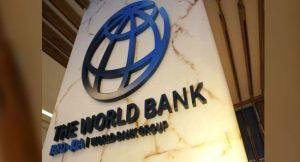The Federal Government is set to secure six new loans totalling $2.23bn from the World Bank in 2025 as the international financial institution continues to support the country’s economic and structural reforms.
Data from the World Bank’s official website indicates that this will bring Nigeria’s total approved loans to $9.25bn over three years, reflecting a growing reliance on multilateral funding to support critical sectors of the economy, including infrastructure, healthcare, education, and economic resilience.
An analysis of Nigeria’s loan approvals from the World Bank since 2023 under the administration of President Bola Tinubu shows a significant increase in funding commitments.
In 2023, the World Bank approved loans amounting to $2.7bn, which primarily targeted projects in renewable energy, women’s empowerment, education, and the power sector.
Among the projects approved that year was the Nigeria Distributed Access through Renewable Energy Scale-up Project, which received $750m to expand private sector-led access to reliable electricity services for households, public institutions, and commercial customers.
Another notable loan approved in 2023 was the Additional Financing for Adolescent Girls Initiative for Learning and Empowerment, valued at $700m, aimed at improving secondary education opportunities for girls in targeted areas.
The World Bank also approved $500m for Nigeria for Women Programme Scale-Up Project, which sought to institutionalise Women Affinity Groups and enhance economic opportunities for unbanked women.
Also, Nigeria – AF Power Sector Recovery Performance-Based Operation received $750m to improve electricity supply reliability, achieve financial and fiscal sustainability, and enhance accountability in the power sector.
The funding approvals recorded in 2024 significantly surpassed those of the previous year, with a total of $4.32bn allocated to various projects.
This increase was largely due to Nigeria’s growing need for financial assistance to stabilise the economy amid mounting fiscal pressures and rising public debt.
One of the largest approvals in 2024 was the Nigeria Reforms for Economic Stabilisation to Enable Transformation Development Policy Financing, which received $1.5bn.
The objective of this funding was to strengthen Nigeria’s economic policy framework by creating fiscal space and protecting vulnerable populations.
Another major loan approval was the NG Accelerating Resource Mobilisation Reforms Programme for Results, which was allocated $750m to raise non-oil revenues and safeguard oil and gas revenues.
Security Programme are at the concept review stage, indicating that they are still in the early phases of assessment and planning.
Meanwhile, projects such as the HOPE for Quality Basic Education and the Nutrition Results Programme have advanced to the negotiation stage, increasing the likelihood of approval within the year.
Board approvals are expected to take place between March and September. Two key projects are scheduled for board approval on March 31, 2025.
The Accelerating Nutrition Results in Nigeria 2.0 initiative, being handled by the Federal Ministry of Health and Social Welfare, is expected to receive $80m to support nutrition interventions for pregnant and lactating women, adolescent girls, and children under five.
Similarly, the HOPE for Quality Basic Education for All project, under the supervision of the Federal Ministry of Education and the Universal Basic Education Commission, is also set for approval on the same date, with a proposed loan of $552.2m aimed at improving foundational learning and increasing access to basic education in participating states.
Meanwhile, the Community Action for Resilience and Economic Stimulus Programme is slated for approval on March 17, 2025.
Later in the year, the Solutions for the Internally Displaced and Host Communities Project is expected to receive board approval on July 15, 2025.
The Nigeria Health Security Programme, which aims to enhance regional collaboration and strengthen health system capacities to respond to emergencies, is due for board approval on August 19, 2025.
Edun acknowledged the critical role played by the World Bank in Nigeria’s development but stressed that the government is prioritising a business-friendly environment to attract sustainable investments.
The Director-General of the DMO, Ms Patience Oniha, has lauded the World Bank for its unwavering support to Nigeria.
Speaking at the 2025 National Sensitisation Workshop on the State Action on Business Enabling Reforms Programme last Monday, Oniha highlighted the multifaceted assistance provided by the international financial institution.
“I would like to acknowledge the World Bank and commend them for their support to Nigeria in various forms,” Oniha stated.
She emphasised that Nigeria benefits from both concessional and semi-concessional funding from the World Bank, which has been instrumental in financing critical development projects across the nation.
Beyond financial aid, Oniha affirmed the significant role of the World Bank in capacity building.
She noted that the institution offers extensive training and technical assistance, enhancing the operational efficiency of Nigerian agencies, including the DMO.
“The World Bank is one development partner that I can call and say we have a need in this area, and they’ve been here with us,” she remarked, highlighting the bank’s responsiveness to Nigeria’s developmental needs.
Oniha further expressed that the collaboration with the World Bank has yielded substantial benefits, particularly in strengthening the DMO’s institutional capacity.
“At the DMO, we’re still a growing and learning institution. So, they help us do our work better and also support the work that we do with you, the States,” she added, acknowledging the positive impact of the partnership on both federal and state-level operations.

Be the first to comment